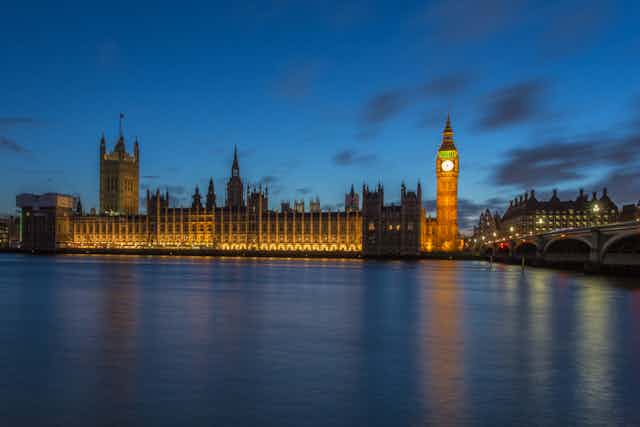Conventions are accepted practices that don’t have the authority of law but depend instead on the force of shared values and expectations. They are more fluid and contestable than legal rules and tend to evolve over time.
All political systems make extensive use of conventions as part of their political culture. But such conventions are particularly important in systems based on the United Kingdom’s Westminster model.
Wacky Westminster
The United Kingdom has no formal, written constitution – though it does have much legislation that is constitutionally relevant. It relies on conventions to define some of its most fundamental constitutional principles. These include the democratic principles that elected governments should be accountable to their citizens and respect their rights.
Though the Australian Commonwealth has a formal constitution as part of its federal settlement with the states, it still follows Westminster in allowing key principles of democratic accountability to operate according to convention.
Many of these conventions are contested. Even the most fundamental democratic convention underpinning the electoral process – that the governor-general acts only on the advice of the prime minister with the support of a majority in the House of Representatives – was successfully challenged in 1975.
The governor-general at the time, Sir John Kerr, acted on his own initiative and dismissed the Whitlam Labor government. That opened the way for the election of the Fraser Coalition government. This highly controversial decision influenced subsequent political attitudes towards the importance of constitutional conventions.
In general, the political left has tended to be in favour of strict observance of constitutional conventions as a matter of independent principle. The political right, though also respectful of established conventions, has shown itself less squeamish about breaking conventions in the name of the national interest as defined by the government of the day.
Polity and policy
Conventions of ministerial responsibility underpin the daily accountability of ministers to parliament and the public. Broadly speaking, ministers are obliged to take responsibility for the conduct of their portfolios in the sense of responding to parliamentary requests for information or imposing remedies when faults are brought to light. They are also required to answer directly to the public by taking questions from the media.
Ministers are expected to take the blame for actions for which they are personally responsible, but not for those that are clearly the fault of officials. Oppositions – and commentators – commonly claim ministers should resign both for their own mistakes and for those of their officials, but this has never been accepted practice.
By convention, misleading parliament is one of the few offences that can precipitate a ministerial resignation. This unfortunately encourages ministers to be evasive and economical with the truth. Otherwise, ministers decide how much information they reveal to parliament or the public – the only sanction being political accountability to voters.
As the Mal Brough case underlines, the convention is flexible in application, which largely depends on the prime minister’s judgement of the relative political costs of retaining or discarding a minister. Even if Brough remains in parliament, however, the damage he has sustained shows the continuing force of the convention.

Ministerial responsibility has also been used to protect the anonymity of public servants, on the ground that only ministers should answer for their departments and agencies. A number of structural reforms, such as the development of Senate estimates committees and the establishment of the ombudsman, have opened public servants up to direct scrutiny of administrative actions, while maintaining ministerial responsibility for matters of “policy”.
The boundaries between “policy” and “administration” are inherently contestable and a common cause of friction. If ombudsmen or auditors-general venture into criticising the substance of government policy (instead of its implementation), for instance, they are likely to face objections from ministers on the ground that the elected government has the right to impose its own policy direction.
At the same time, ministers surrender their democratic accountability obligations when they choose to devolve responsibility onto others. An example is outsourcing implementation of controversial policies to private sector contractors not subject to the same accountability regime as government officials.
Yes, minister
Relations between ministers and the public service are also subject to shifting conventions. Westminster-based traditions support a politically neutral public service appointed on merit and loyally serving the government of the day.
But since the early 1990s, heads of departments (secretaries), who are appointed by the prime minister, have been employed on limited-term contracts terminable at any time. In 1996, the incoming Coalition prime minister, John Howard, broke the convention that incumbent secretaries would serve out their terms under a new government, by immediately replacing six secretaries.
The convention was restored by the next Labor prime minister, Kevin Rudd, but broken again by the Coalition’s Tony Abbott. Labor seems to see the value of trusting the professionalism of the public service, while the Coalition, being more doubtful of the capacity and loyalty of public servants, seeks to vigorously impose its own political control over the machinery of government.
All recent governments have emphasised the importance of media management and have increased the number and influence of political advisers. This has weakened the close relationship with public servants on which Westminster public service conventions depend.
Other areas in which conventions are both important and controversial include relations between the executive and judicial branches of government, the extent of political patronage in government appointments, and the use of public funds for political campaigning.
While conventions have the general advantage of being free from legalistic rigidity, they can be open to abuse for partisan reasons. The fact that they depend on political sanctions for enforcement places a particular onus on conventions surrounding transparency of government information as a safeguard of democratic accountability.
This is the first in a series on breaking political conventions. Look out for more articles exploring various political conventions in the coming days.

